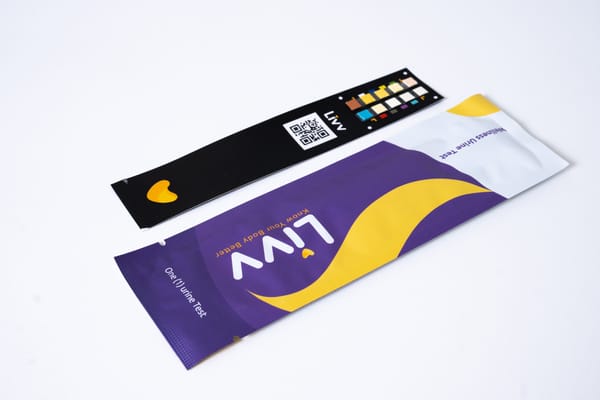The Ultimate Guide to Personalized Nutrition

Personalized nutrition is revolutionizing the way we think about food and health. Gone are the days of one-size-fits-all diets; today, advances in science and technology allow us to tailor our nutrition plans to fit our unique genetic makeup, lifestyle, and health goals. Whether you’re looking to optimize your energy levels, improve your gut health, or manage a chronic condition, personalized nutrition can help you achieve your goals more effectively than traditional approaches. This ultimate guide will explore the principles, benefits, tools, and steps to create a customized nutrition plan that works for you.
What is Personalized Nutrition?
Personalized nutrition involves tailoring dietary recommendations to an individual’s unique characteristics, including their genetics, microbiome, lifestyle, preferences, and health status. Unlike generic dietary guidelines, personalized nutrition considers factors such as:
- Genetics: Your DNA can influence how you metabolize nutrients, your risk for certain diseases, and even your taste preferences.
- Microbiome: The trillions of microorganisms in your gut play a crucial role in digestion, immune function, and overall health.
- Lifestyle: Physical activity, stress levels, sleep patterns, and daily routines all impact your nutritional needs.
- Health Goals: Whether you want to lose weight, gain muscle, or manage a specific health condition, personalized nutrition helps you achieve your objectives.
- Food Preferences: A sustainable nutrition plan should align with your personal tastes and cultural preferences.
By taking these factors into account, personalized nutrition offers a more precise and effective approach to improving health and well-being.
Benefits of Personalized Nutrition
- Optimized Health Outcomes Personalized nutrition can help prevent and manage chronic conditions such as diabetes, heart disease, and obesity. By addressing your unique risk factors, it provides targeted interventions that lead to better health outcomes.
- Improved Energy Levels Eating the right balance of macronutrients and micronutrients for your body can enhance your energy levels and mental clarity, helping you perform at your best.
- Better Gut Health Tailoring your diet to support your gut microbiome can improve digestion, reduce inflammation, and boost your immune system.
- Sustainable Weight Management Unlike generic diets that may not suit everyone, personalized nutrition helps you maintain a healthy weight in a way that aligns with your body’s needs and preferences.
- Increased Longevity By addressing your unique nutritional requirements, personalized nutrition can contribute to a longer, healthier life by reducing the risk of age-related diseases.
The Science Behind Personalized Nutrition
Personalized nutrition relies on cutting-edge scientific advancements, including:
- Nutrigenomics: The study of how genes interact with nutrients and influence health.
- Metabolomics: The analysis of metabolites in your body to understand your metabolic processes.
- Microbiome Analysis: Assessing the composition and function of your gut bacteria.
- Biomarker Testing: Measuring factors like blood sugar, cholesterol, and inflammation to tailor dietary recommendations.
These tools provide valuable insights that allow healthcare professionals and nutritionists to design highly customized dietary plans.
Tools and Technologies for Personalized Nutrition
Thanks to technological advancements, personalized nutrition is more accessible than ever. Here are some tools that can help you get started:
- Genetic Testing Kits Services like 23andMe and Nutrigenomix analyze your DNA to provide insights into how your genetics affect your nutritional needs.
- Gut Microbiome Testing Companies like Viome and DayTwo offer microbiome analysis to help you understand how your gut bacteria influence your health.
- Wearable Devices Fitness trackers and smartwatches can monitor metrics like physical activity, sleep patterns, and heart rate, which are important for tailoring your nutrition.
- Health Apps Apps like MyFitnessPal, Cronometer, and Yazio help you track your food intake, monitor your progress, and stay accountable to your goals.
- Blood Tests Regular blood tests can measure biomarkers such as glucose, lipids, and vitamin levels, offering actionable data for dietary adjustments.
Steps to Create a Personalized Nutrition Plan
Creating a personalized nutrition plan involves several steps:
- Assess Your Current Health and Goals Begin by evaluating your current health status, dietary habits, and lifestyle. Identify specific goals such as weight loss, improved energy, or disease management.
- Gather Data Use tools like genetic testing, microbiome analysis, and blood tests to gather information about your body’s unique needs.
- Consult a Professional Work with a registered dietitian or nutritionist who specializes in personalized nutrition. They can interpret your test results and provide expert guidance.
- Design Your Plan Based on your data and goals, create a tailored nutrition plan that includes specific macronutrient and micronutrient recommendations, meal timing, and portion sizes.
- Implement Gradual Changes Start by making small, manageable adjustments to your diet. Gradual changes are more sustainable and less overwhelming.
- Track Your Progress Monitor your progress using wearable devices, apps, or a food journal. Regularly review your plan and make adjustments as needed.
- Reassess and Refine Personalized nutrition is a dynamic process. Reassess your health and goals periodically and refine your plan to ensure it continues to meet your needs.
Challenges and Considerations
While personalized nutrition offers many benefits, it’s important to be aware of potential challenges:
- Cost: Genetic tests, microbiome analysis, and professional consultations can be expensive.
- Complexity: Interpreting data and creating a plan can be overwhelming without professional guidance.
- Consistency: Sticking to a personalized plan requires discipline and commitment.
- Ethical Concerns: Privacy and data security are important considerations when using genetic and health data.
Tips for Success
- Stay Open-Minded Personalized nutrition may involve trying new foods or changing long-standing habits. Keep an open mind and be willing to experiment.
- Focus on Sustainability Choose a plan that aligns with your lifestyle and preferences to ensure long-term success.
- Educate Yourself Learn about nutrition and how different foods affect your body. The more you know, the easier it will be to make informed choices.
- Be Patient Personalized nutrition is a journey, not a quick fix. Give yourself time to see results and make adjustments as needed.
Conclusion
Personalized nutrition represents the future of health and wellness, offering a tailored approach that empowers individuals to take control of their well-being. By leveraging scientific insights, cutting-edge technology, and professional guidance, you can create a nutrition plan that supports your unique needs and goals. Whether you’re optimizing your performance, managing a health condition, or simply striving for a healthier lifestyle, personalized nutrition is your ultimate tool for success.




